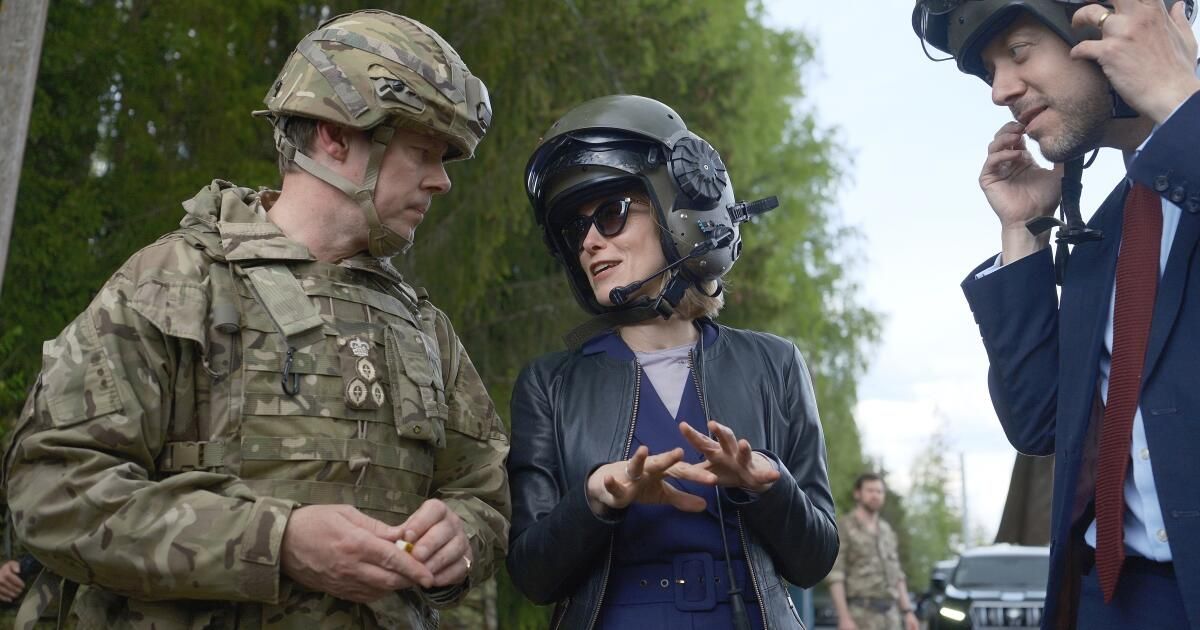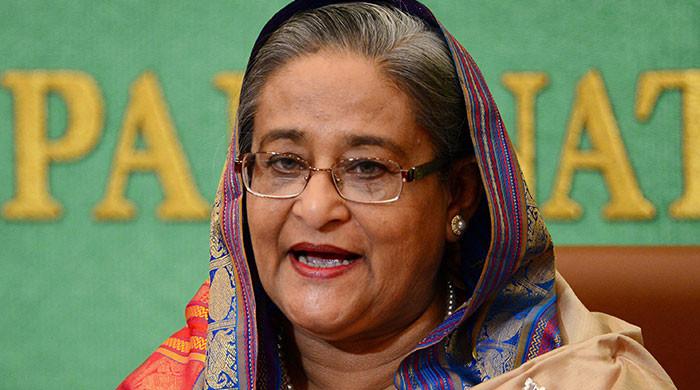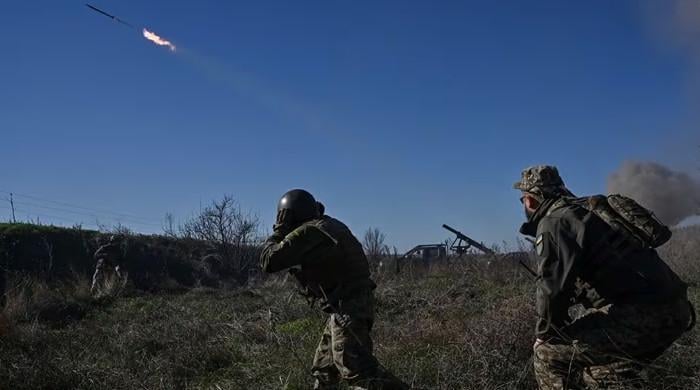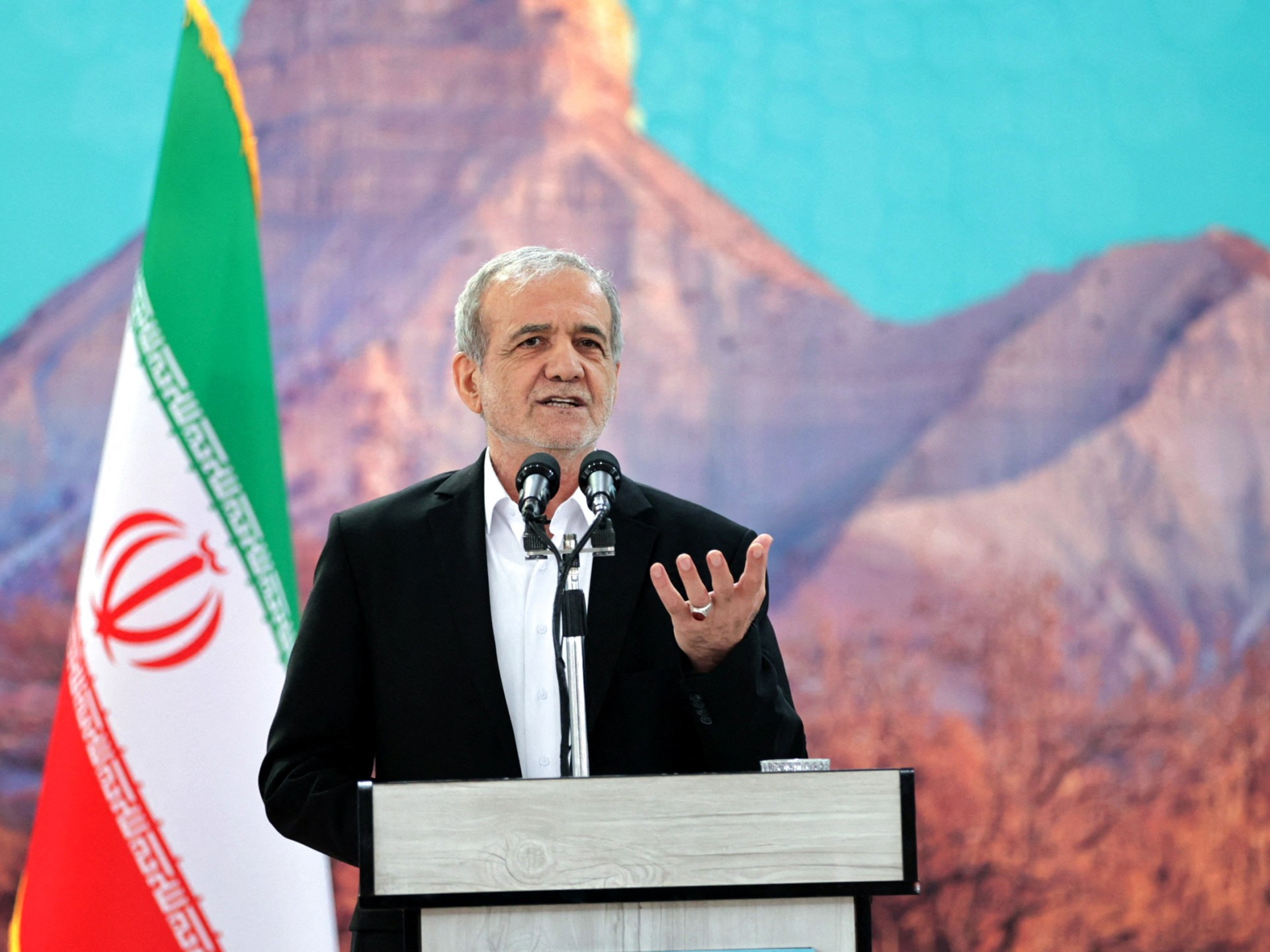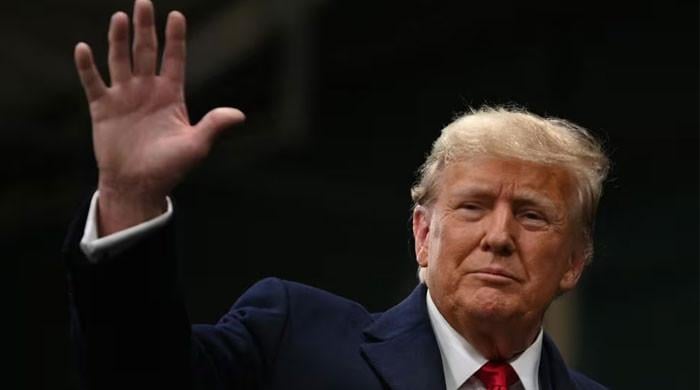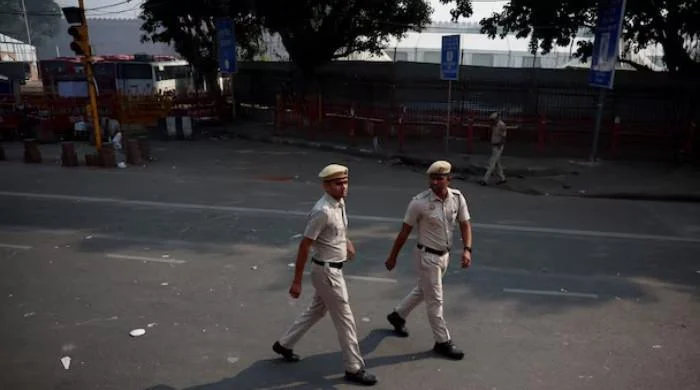Perched on the open ramp on the back of a British Chinook helicopter, Estonian Prime Minister Kaja Kallas flew home from the annual Spring Storm military exercises, pleased to see NATO allies cooperating. But he later said that he had other types of war in mind.
His nation, which borders Russia, has seen a rise in sabotage, electronic warfare and espionage, all attributed to Moscow.
As the war in Ukraine turns in Russia's favor, defenses are being strengthened in the frontline nations of Estonia, Latvia and Lithuania, as well as in Finland and Poland.
Kallas says Russia is waging a “shadow war” against the West.
Lithuanian President Gitanas Nauseda urged vigilance and said Tuesday that he had information that “acts of sabotage may occur again.”
Polish Prime Minister Donald Tusk said at least nine people were recently arrested on suspicion of beatings and arson, allegedly directed by Russia's secret services, and described them as Ukrainian, Belarusian and Polish citizens, some “from the criminal world.” ”.
Not everyone sees the attacks as interconnected, Kallas told the Associated Press, despite NATO's claim this month that Moscow is stepping up its campaign against the alliance from the Baltics to Britain. Russia dismissed that accusation.
With many Russian intelligence officers already sanctioned, Western officials and experts say the Kremlin is changing tactics and hiring others for hybrid operations: non-military strategies that include cyberattacks, election interference and disinformation, and attacks on enemies of President Vladimir Putin. .
With crucial elections in the West, officials say they believe the pace of such activities will only increase, and some want tougher countermeasures.
Kallas cited a warning from an intelligence agency to a European country that one of its warehouses was a target of Russian military intelligence. When a fire broke out at the warehouse two weeks later, the country's officials suggested that “we don't know it's the Russians,” he said. Kallas did not identify the country.
The West must have a “serious discussion about a coordinated approach,” he said. “How far will we let them go on our soil?”
Estonia has taken the challenge of finding Russian agents of influence “very seriously” since it regained its independence from the USSR in 1991, rebuilding its security services from the ground up, U.S. Ambassador George Kent told the AP.
This year in Estonia, a university professor was arrested on charges of spying for Moscow, 13 people were arrested for attacks allegedly organized by Russian military intelligence operating under diplomatic cover, and flights between Finland and the Estonian city of Tartu were disrupted by the Russian interference of GPS signals.
In October, a Baltic Sea gas pipeline and telecommunications cables were damaged after a Chinese ship dragged its anchor for more than 115 miles in an incident that is still under investigation. That ship was later seen in a Russian port.
Britain expelled Russia's defense attaché in May after two Britons were accused of working with Russian intelligence services to set fire to a London warehouse. In April, two Russian German nationals were arrested and charged with attempting to attack military facilities in southern Germany.
“What I would like to see is recognition that these are not isolated events,” Kallas said. “Secondly, that we share information about this among ourselves. Third, make it as public as possible.”
Estonia, a nation of 1.3 million people, has a reputation for aggressively pursuing and publicizing espionage activities, capturing more Russian agents per capita than other European nations.
“It's not very plausible” that there would be such a large group of agents in Estonia that it would make it easier to catch them, Kusti Salm, permanent secretary of Estonia's Defense Ministry, said in an interview with the AP, hinting that other countries could work harder at it. .
Former Estonian President Toomas Hendrik Ilves, in office from 2006 to 2016, said some nations do not act because they hope to do business with Russia again.
“People are afraid to take decisive action, and the absence of decisive action basically tempts bad actors to continue pushing their luck,” added Ilves, who faced a major cyberattack attributed to Russia in 2007.
Russian officials, he said, “will try their luck until something bad happens, but they will not pay the consequences. We will do it.”
That could lead to unintended deaths and injuries, Estonian officials and security experts say, citing a trend for Russia to outsource attacks to locals, sometimes recruited cheaply from gaming and social media platforms. That makes it harder to identify connections between attacks or trace them back to Russia.
Bulgarian investigative journalist Christo Grozev, who exposed Russian intelligence's involvement in the 2018 poisoning of former spy Sergei Skripal in Britain and the late Russian opposition leader Alexei Navalny in 2020, was a victim of such outsourcing.
A former Austrian intelligence officer was arrested in March for providing Grozev's address to Russian intelligence, which allegedly hired thieves to break into the journalist's apartment in 2022 and steal a laptop related to the Navalny investigation. Grozev had to move from Vienna last year after authorities said they could not guarantee his safety.
Grozev said his son was in his room playing computer games when the 2022 robbery occurred, adding: “Imagine if he was gone.”
He and other journalists uncovered links between an attack on a Russian opposition figure in Argentina last year and a Polish organized crime cell. When the information was passed to Polish authorities, they found a connection between the Argentine attack and one against Russian opposition figure Leonid Volkov in Lithuania in March. Lithuania's security service said the attack was probably organized by Russia.
Grozev said nations should enforce intelligence sharing between their own security services, police and prosecutors and create a “proactive international task force” to combat foreign influence operations.
Although Russia has been blamed for attacks in Europe for decades, Estonian officials and security experts said there is no collective mechanism to address them and suggested the European Union do more.
Kallas says Russia uses spies disguised as diplomats “all the time,” and senior Estonian officials support a Czech initiative that limits visas for Russian envoys to the country where they are posted.
That would make it harder for them to travel within the EU, where IDs are not needed at the border. It could also reduce the chance of one nation expelling spies, only to see them return to another and continue working under diplomatic cover.
Estonia is also pushing for separate sanctions within the EU to counter hybrid threats. Although many Russian intelligence agents are already sanctioned, this could deter some “middlemen” – local organized crime figures, disillusioned young people and potential spies and collaborators – from working for Moscow, said Jonatan Vseviov, secretary general of the Russian Foreign Ministry. Estonia.
While some countries feel such exposure could cause instability and erode trust, Grozev called it an important deterrent.
Russian intelligence officers conducting operations abroad are “extremely averse” to incidents in which they are named and shamed, Grozev said. These people may be denied promotion and their representatives will realize that they cannot be guaranteed immunity, he said.
The threat of sanctions and reduced opportunities to travel and study abroad may also help deter younger Russians from joining the security services.
Russia seeks to “spread fear” and break Western support for Ukraine, Kallas said.
Vseviov said Putin wants to use all available tools, including dark attacks, to “undermine our unity, collapse our politics and destroy the collective West, as we know it, as a functioning organism.”
Burrows writes for the Associated Press. AP writers Monika Scislowska in Warsaw and Jan M. Olsen in Copenhagen contributed to this report.

